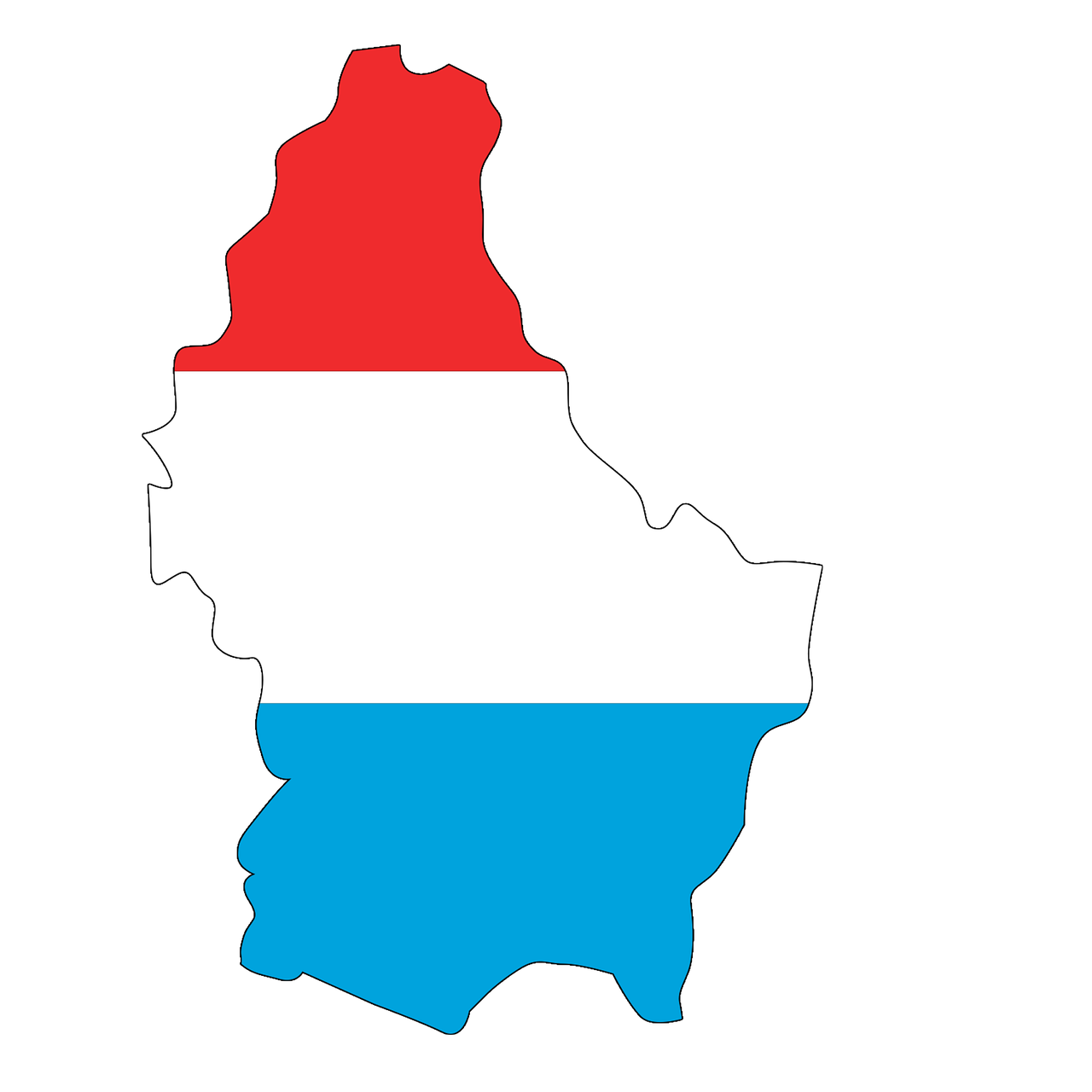Did you know that there is a part of Belgium called the Province of Luxembourg and it’s actually bigger in size than the Grand Duchy of Luxembourg?
The History Behind the Province of Luxembourg, Belgium
Back in 1815, when the Grand Duchy of Luxembourg was first created, it was a much larger territory. This much larger country was a personal possession of the King of the Netherlands. At the time, the Netherlands was also a much larger country.
The Belgian Uprising
Starting in the 1830s, a group of people in what is today Belgium began an uprising because they felt disadvantaged due to their Catholic faith under the protestant King of the Netherlands. This is called the Belgian Revolution. At first, the King of the Netherlands, also the ruler of Luxembourg, did not recognize Belgian independence. Only at the signing of the Treaty of London in 1839, did the Netherlands recognize the Kingdom of Belgium. Therefore, Belgium is actually a younger country than the relatively young Grand Duchy of Luxembourg.
The Treaty of London not only formally recognized the Kingdom of Belgium, it also gave full independence to Luxembourg. But it also ceded a large amount of traditionally Luxembourgish territory to the Kingdom of Belgium. This is today’s Luxembourg Province, Belgium.
Even until today, many people in Luxembourg Province culturally identify with Luxembourg. Many people in Luxembourg Province speak Luxembourgish for example.
Dual Citizenship & Ancestors Born in the Province of Luxembourg
It is important to know, for people interested in dual citizenship, the legal distinction between Luxembourg Province, Belgium and the Grand Duchy of Luxembourg. It is true that for a number of years, the Province of Luxembourg, Belgium was a part of the Grand Duchy of Luxembourg. It is true that anyone born in the Province of Luxembourg, Belgium between 1815 and 1839 would have in fact been born a citizen of the Grand Duchy of Luxembourg at that time.
However, when the two countries were split in 1839, people living on the territory of the Province of Luxembourg, Belgium became subjects of the King of Belgians. Even if they were born between 1815-1839, these people had their citizenship switched to Belgian and lost the rights to Luxembourgish citizenship.

Effects on Dual Citizenship Eligibility
We are contacted by many individuals whose ancestors were born in the Province of Luxembourg, Belgium. They believe they should also be entitled to obtain Luxembourg dual citizenship. In fact, this is not the case. Due to the law in effect at the time, anyone living on the territory of the Province of Luxembourg, Belgium lost their Grand Duchy of Luxembourg citizenship at the time that the two countries were split.
The only possible exception would be if you could prove that someone born in the Province of Luxembourg, Belgium was living in the territory of the Grand Duchy of Luxembourg at the time that the two countries were split in 1839. And while you might be relatively hopeful about this prospect, the reality is that most people did really stay where they were from in general during the time in question.
So, the amount of people born after 1815 that did in fact move from the territory of Luxembourg Province, Belgium to the Grand Duchy of Luxembourg between 1815 and 1839 was quite low. Only people born after 1815 had Grand Duchy of Luxembourg citizenship.
Most Ancestors Born in Province of Luxembourg Are Not Qualifying Ancestors
We understand that it can be confusing when an ancestor was born between 1815 and 1839 in the Province of Luxembourg during the time that it was still legally the Grand Duchy of Luxembourg.
The Archives of Luxembourg and Belgium create an easy litmus test of who was considered a Belgian citizen after 1839 and who was considered a Luxembourg citizen. Generally speaking, the vital records from 1815 to 1839 from Luxembourg, Belgium have been moved to the Archives of Belgium. They are therefore no longer property of the Grand Duchy of Luxembourg.
This is going to be your first red flag that there is no document in the bloodline that can be presented that is from and certified by the Grand Duchy of Luxembourg.
Finally, you also have to remember that before 1815, the Grand Duchy of Luxembourg did not exist. So, even if older records could possibly be sitting today in the Grand Duchy of Luxembourg for an ancestor born before 1815, they are not a qualifying ancestor for you to apply.
So, in summary, if your most recent connection to Luxembourg is someone born in the Province of Luxembourg, Belgium, the most likely scenario is that they are not a qualifying ancestor to apply for Luxembourg Dual Citizenship. You are still welcome to contact us with your inquiry regarding eligibility. However, this is most likely to be the outcome. Belgium unfortunately does not offer ancestry citizenship.


